The Making of a
Civil Rights Leader
Jos Angel Gutirrez
Jos Angel Gutirrez

This volume is made possible through grants from the Charles Stewart Mott Foundation, the Ewing Marion Kauffman Foundation, the Rockefeller Foundation, and in part by the City of Houston through The Cultural Arts Council of Houston/Harris County.
Piata Books are full of surprises!
Arte Pblico Press
University of Houston
452 Cullen Performance Hall
Houston, Texas 77204-2004
Cover design by James F. Brisson
Photos courtesy of Jos Angel Gutirrez
Gutirrez, Jos Angel.
The Making of a Civil Rights Leader / Jos Angel Gutirrez.
p. cm.
Summary:
ISBN-10: 1-55885-451-7 (alk. paper)
ISBN-13: 978-1-55885-451-2
1. Gutirrez, Jos Angel. 2. Gutirrez, Jos AngelChildhood and youth. 3. Gutirrez, Jos AngelFamily. 4. Mexican AmericansTexasCrystal CityBiography. 5. Civil rights workersTexasCrystal CityBiography. 6. Political activistsTexasCrystal CityBiography. 7. Mexican AmericansCivil rightsHistory20th century. 8. Mexican AmericansCivil rightsTexasCrystal CityHistory20th century. 9. Crystal City (Tex.)Ethnic relations. 10. Crystal City (Tex.)Biography. I. Title.
F394.C83G89 2005
976.4437063092dc22
[B] | 2004060014
CIP |
 The paper used in this publication meets the requirements of the American National Standard for Information SciencesPermanence of Paper for Printed Library Materials, ANSI Z39.48-1984.
The paper used in this publication meets the requirements of the American National Standard for Information SciencesPermanence of Paper for Printed Library Materials, ANSI Z39.48-1984.
2005 by Jos Angel Gutirrez
Printed in the United States of America
5 6 7 8 9 0 1 2 3 4 10 9 8 7 6 5 4 3 2 1
Table of Contents
This book is dedicated to Norma Williams, a Chicana from Kingsville, Texas. She inspired me to write this book so that younger generations would know about my civil rights struggles. My struggles were like hers, except she labored primarily in higher education, seeking excellence in scholarship. And to my first grandson, Juan Marcel Tijerina, from my daughter Tozi Aide Gutirrez, so that he can learn about his kranpa.
Acknowledgments
My parents, Angel Gutirrez Crespo and Concepcin Fuentes Casas, provided a wonderful home and family environment for me. I was an only child, so I grew up with the most positive role models and nurturing parents. They made me the focus and central part of their lives. I received the best from each of them.
In my barrio of Mxico Grande in Cristal, as the Chicano community called Crystal City, Texas, I had many friends, camaradas. El Junior (Pete Galvn, Jr.), Chibeto (Gilbert Martnez), Pichn (Rudy Palomo), Panchillo (Francisco Rodrguez), Cuco (Refugio Sandoval), and I were the best of friends. I was called bebito when I was a child, then Angelito, and later on in high school El Diablo. Once I reached junior high and high school, the circle of friends widened to include guys from other parts of our barrio and other barrios in town. Gepo (Gspar Mndez), Lalillo (Lalo Martnez), and Chale (Charles de la Rosa) were from my barrio, just further away than West Edwards Street, my street. Bocho (Ambrosio Melndrez), Chevo (Eusebio Guerra), and El Jerry (Jerry Perales) were from the swimming pool area. El Diablo (Joe de Hoyas), El Chicken Eye (Ezequiel Romero), and La Tripa (Rafael Tovar, Jr.) were from the Avspero barrio. Ruflas (Ral Trejo) and La Pepina (Jos Villarreal Jr.) were from Mxico Chico.
I had many friends who were girls, but the culture at the time did not permit you to hang out with them as much as with the boys. Chagua Vargas was my across-the-street neighbor and baby sitter. Berta Mojica, Dora and Carmen Palomo, Mary and Minerva Tamez, Olga Mena, Olga Martnez, Olga Tovar, Ofelia Perales, Gloria de la Cruz, Lupe Hernndez, Raquel Estrada, Frances Pancha Ramrez, Francis and Nellie Benavides, Noelia and Betty Martnez, Irma Serna, Linda Jurez, Isabel Caldern, Anna Rojas, Noemi Palacios, and Rosa Jilpas. Some Anglo girls befriended me: Shirley Guyler, Joyce Cook, Sylvia Bookout, Brenda Ray, Patricia Gregory, Janet Coker, Gladys and Lois Crawford, Lynn Pegues, and Johnnie Chris Speer. Anglo girls at that time could not become your girlfriend, their parents would not allow it.
Then I had buddies in college who helped me to develop, as did my camaradas in the barrios of my hometown. And I went to several colleges. At Uvaldes Southwest Texas Junior College, I remember Gabe Tafolla (Uvalde), Greg Gutirrez (Asherton), and Juan Patln (Carrizo Springs). At Texas A&I Kingsville, I met my first wife, Luz Bazn (Falfurrias), as well as los camaradas Carlos Guerra (Robstown), Lilian Tobn (Palito Blanco), Lydia Zrate (Falfurrias), Gilbert Anzalda (Harlingen), Efran Fernndez (Kingsville), and Alberto Huerta (Corpus Christi). I also met Anglos who became my best friends, such as Bill Richey (Harlingen), Pat Lawrence (Houston), Braden Rawlins, Fred Cuny, and James Belt (Harlingen) who was black. While at the various colleges, I met many other students, teachers, neighbors, and people in the communities who are too numerous to mention, all of whom also had an impact on my life.
I also wish to acknowledge and thank Rosalie Robertson and Bill Andrews who worked with the University of Wisconsin Press when a book on my political history was published. Henry A.J. Ramos and Nicols Kanellos are helping me see this project to fruition. Nick tirelessly corrects my writing to make it readable. I want to thank the entire staff at Arte Pblico Press, particularly Marina Tristn and Mnica Parle. I e-mail Marina more frequently than anybody else about my books and related questions. Mnica does a great job with marketing and helps with my travel for book signings across the country.
And as you would expect, I acknowledge the role my family plays in my book writing. They have been and continue to be endlessly patient with my absences, while I go to write or think or dictate my thoughts. Gloria, my wife, Andrea and Clavel always forgive me for not going with them to their important activities, more often than not, as did Adrian, Tozi, Olin, Avina, and Lina when they also were at home. They usually read portions of my drafts of chapters. Thank them for what you now have in your hands.
Introduction
Every one of us has a unique, dramatic story to tell. We often tell that story in oral fragments during conversations and during arguments with others. Seldom do we write about ourselves. We should. If we do not write about ourselves, who will? I wrote this book to reach a young audience who can learn from my life experiences. I want you to know how to change the world. I tried and I did, somewhat. An unfinished job remains for you and me together to continue. In many, many ways, my life story is much like that of any other child of Mexican parents growing up in the United States. I learned to be a Mexican at home with my parents until I reached public-school age. Then, I was forced to forget Spanish and learn English, at least while in school. We do spend more time in school with others than with family or friends in the neighborhood.
In school, every time I was caught speaking Spanish I was paddled or given the option of a three-day suspension. If I took the suspension, I had to play hooky because if I showed up at home, Id get paddled there. I learned to hate everything about Spanish, including those who spoke Spanish, beginning with me. I had to fake being anything but Mexican at school. I had to become three people in one: Mexican at home, Anglo while at school, and Chicano in the barrio. Trying to be Anglo in school to please teachers made my classmates angry. If I answered a question correctly or raised my hand with an answer, some


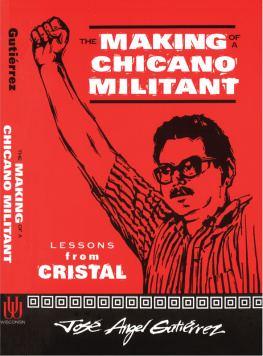
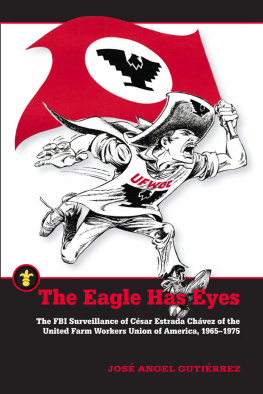
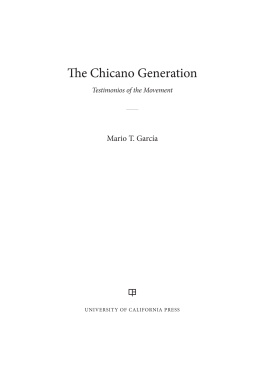

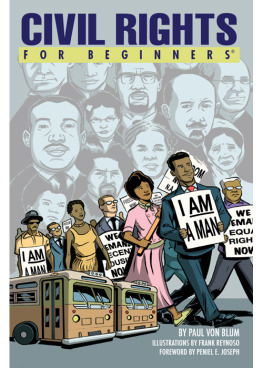

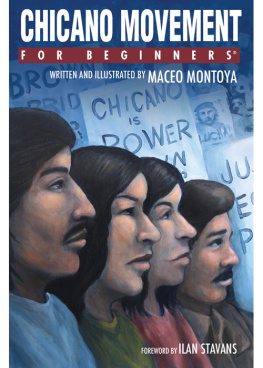

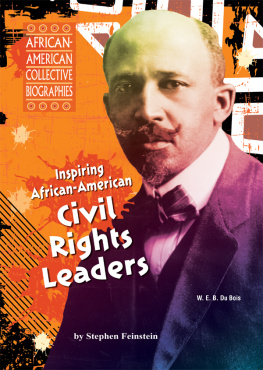
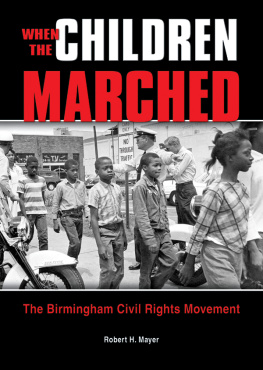

 The paper used in this publication meets the requirements of the American National Standard for Information SciencesPermanence of Paper for Printed Library Materials, ANSI Z39.48-1984.
The paper used in this publication meets the requirements of the American National Standard for Information SciencesPermanence of Paper for Printed Library Materials, ANSI Z39.48-1984.